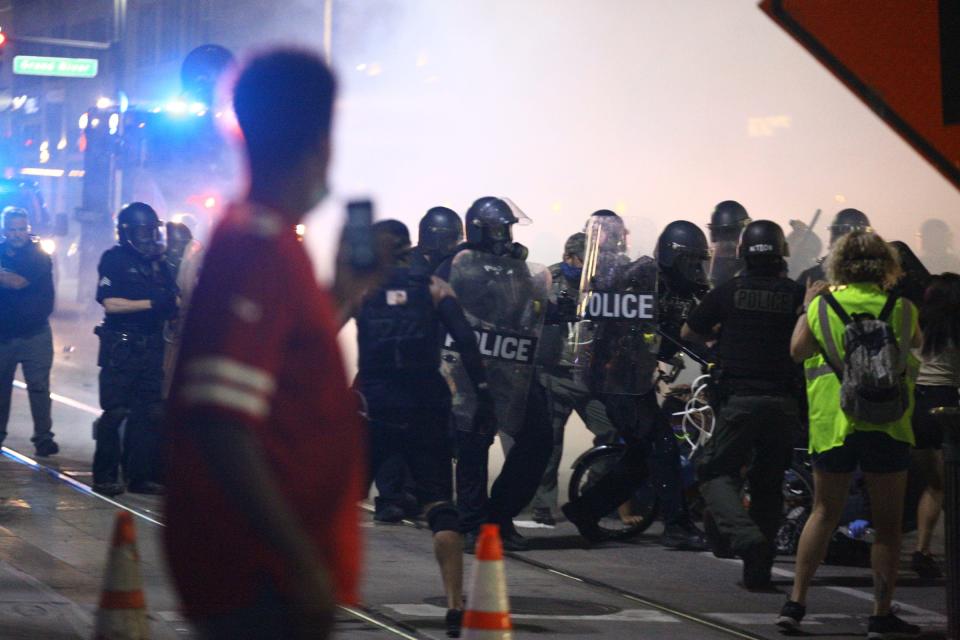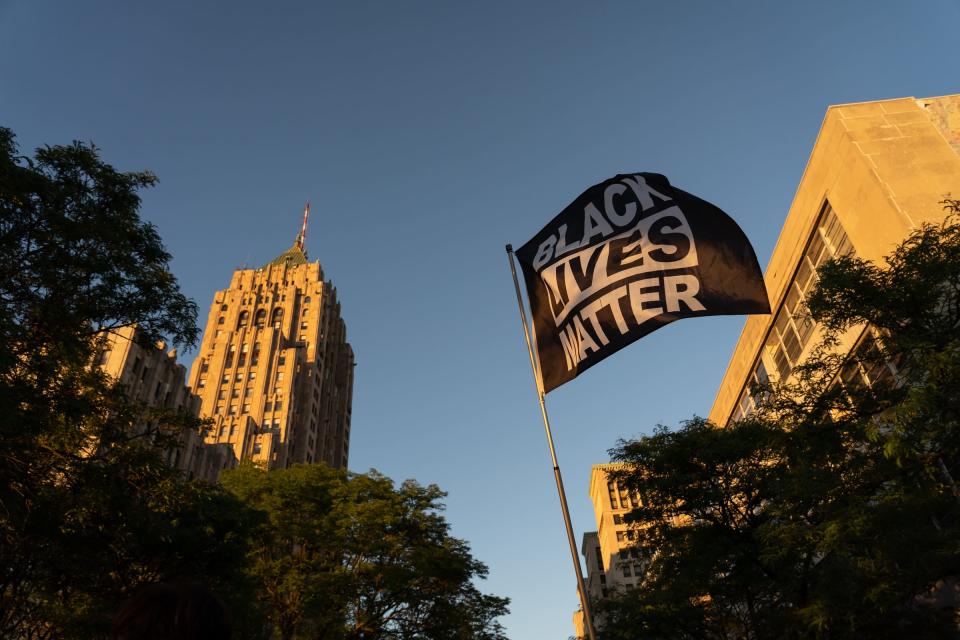Detroit police urge City Council to reject settlement on Detroit Will Breathe lawsuit
The Detroit Police Department strongly urged the City Council on Thursday to reject the city legal department's proposal to offer settlements totaling nearly $1.3 million in five excessive force lawsuits against police stemming from the 2020 George Floyd protests.
"Our officers overwhelmingly acted appropriately time and again to protect free speech while also maintaining public safety," Deputy Chief Mark Bliss read from a statement during Thursday's Board of Police Commissioners meeting.
The statement, on behalf of the office of Detroit Police Chief James White, labeled allegations of excessive force against police as "phantom claims" and denounced providing protesters any monetary compensation.

Lawsuits alleged severe injuries to protesters
The racial justice group Detroit Will Breathe and four individual protesters alleged in their lawsuits that police force resulted in hospitalizations, beatings, concussions, damaged nerves, and dislocated, fractured and broken bones — including a collapsed lung, broken ribs, a fractured skull and brain bleeding.
The lawsuits filed against the city also allege Detroit police unlawfully used arrests, batons, pepper spray, tear gas, sound cannons, chokeholds, rubber bullets and flash grenades against protesters.
More: Detroit protesters file lawsuit over 'brutal violence' from police
More: Resisting and race: Black residents are disproportionately accused of obstructing police
Early in their legal battle, Detroit Will Breathe secured a temporary restraining order against the use of those tactics. The city then alleged that protesters were part of a "civil conspiracy" to destroy property, hurt police officers and incite rioting.
A judge, however, concluded the city failed to adequately prove that claim, and tossed it.
On Tuesday, the city's legal department proposed to the City Council offers totaling $1,035,000 to Detroit Will Breathe; $10,000 to Marlon Frazier; $10,000 to Timothy Hall; $60,000 to Emma Howland-Bolton, and $150,000 to Nadia Rohr.

Representatives for Detroit Will Breathe declined to comment Thursday.
In August 2020, when Detroit Will Breathe vowed to take legal action against the police department, with group cofounder Nakia-Renne Wallace telling a crowd of about 100 protesters at Clark Park: “This was a turning point. ... Because there is no excuse for charging into a group of people who were just occupying space.”
Deputy Corporation Counsel Charles Raimi told the Free Press in an email that the legal department's decision to offer payments was a financial one.
"The city’s law department’s offers of judgment reflect the unfortunate reality that in our litigious society, and particularly in cases of this sort where plaintiffs’ lawyers (but not the city’s lawyers) have the opportunity to recover enormous attorney fees payable by the city, the city’s financial interests may be best served by seeking a settlement," Raimi wrote.
The offers have not yet been accepted or denied, Raimi said.
Attorney: The right to protest is a 'cornerstone of any functional democracy'
Amanda Ghannam, an attorney representing Detroit Will Breathe, told the Free Press that the protesters' goal wasn't about the money — it was to secure the temporary injunction of certain police force, which they had.
Another goal of the lawsuit was to protect the First Amendment right to protest.
"The constitutional rights at issue are the cornerstone of any functional democracy. It is really important to protect people's right to protest, right to gather in the streets, express their feelings about government and not be arrested, beaten, and jailed for it," Ghannam said.
"We've gone through months of discovery, we've obtained documents, we've reviewed body cam footage — I think that if this case proceeds to trial, the city is going to have a real tough time proving that any of their narrative is true, and I think that could have something to do with them considering making these offers of judgment," Ghannam said.
Andrea Sahouri covers criminal justice for the Detroit Free Press. She can be contacted at asahouri@freepress.com or on Twitter @andreamsahouri.
This article originally appeared on Detroit Free Press: Detroit police to council: Don't pay Detroit Will Breathe protesters

